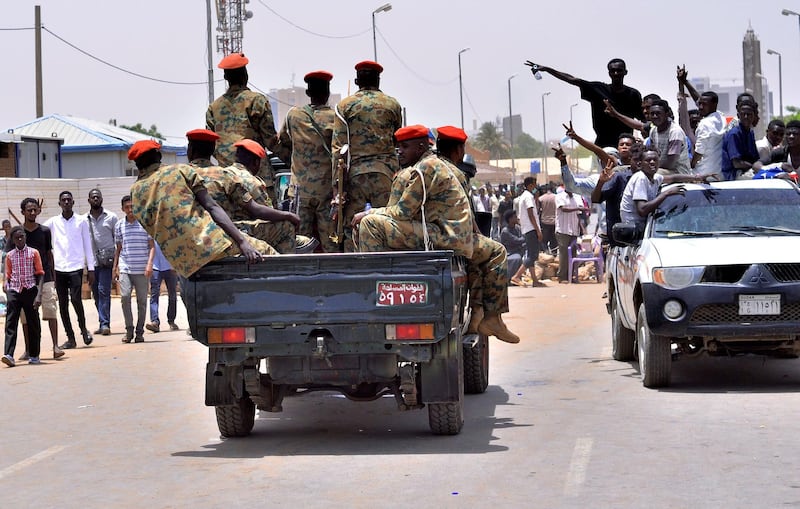After 30 years, the Sudanese people have called time on Omar Al Bashir's presidency. What began in December as unrest over price rises and food shortages quickly escalated into a nationwide movement. Tens of thousands of Sudanese massed outside the defence ministry compound in the capital Khartoum today and for eight hours, waited to hear the news they had longed for: that the president had finally capitulated to months of dissent and stepped down. Appearing on state television, Sudan's defence minister, Awad Mohamed Ahmed Ibn Auf, declared that for "a transitional period of two years, the armed forces will take power with the representation of the people to pave the way for the people". He also announced that Mr Al Bashir would be arrested and the 2005 constitution would be cancelled. With strands of the army appearing alongside protesters and trading fire with Mr Al Bashir's security forces on Tuesday, this had seemed like a victory for people power, symbolised by the widely shared image of 22-year-old student Alaa Saleh, her white-robed figure standing atop a car roof as she pointed skywards. But following the televised announcement of the handover of power, Sudanese people will be wondering exactly what the future holds.

Since he came to power in a military coup in 1989, Mr Al Bashir has failed to unite the country and his people have been suffering, particularly since the secession of oil-rich South Sudan in 2011. Half the population earn less than $2 a day, the prices of fuel and commodities have risen steeply in recent months and the government-protected Janjaweed militia continue to carry out atrocities. Sudan stands on the cusp of real change but there are dangers ahead. Its future is far from determined and the threat of further violence is ever-present. Mr Al Bashir will be eager to avoid charges of genocide levelled at him by the International Criminal Court in 2010 for his suppression of an independence movement in Darfur. Despite his arrest, the former president might retain some leverage with military officials keen to avert chaos. Meanwhile, two years of military rule might do little to placate protesters who demanded a “civilian transitional government”. For now, an all-out collapse of government authority and widespread disorder, with different groups and militias fighting for supremacy, appears to have been averted. Such an outcome would have devastated the country and would have been felt across Africa and the Middle East.
Now that Sudan's military has assumed power, it should work towards holding presidential elections. They must be free and fair, to appease millions of disenchanted Sudanese, who will not settle for more of the same. It is worth remembering that Mr Al Bashir is not just a man but the face of a wider system, constructed and perpetuated over the course of 30 years. The fate of many people within the ruling party and the country's feared intelligence services are inextricably tied to his. How the military now deals with them will set the tone moving forward. But the hope that has characterised these protests must not give way to years of opaque military rule. With the assistance of the international community and regional powers, the army must peacefully oversee a proper transition to civilian rule. The fate of millions depends on it.





